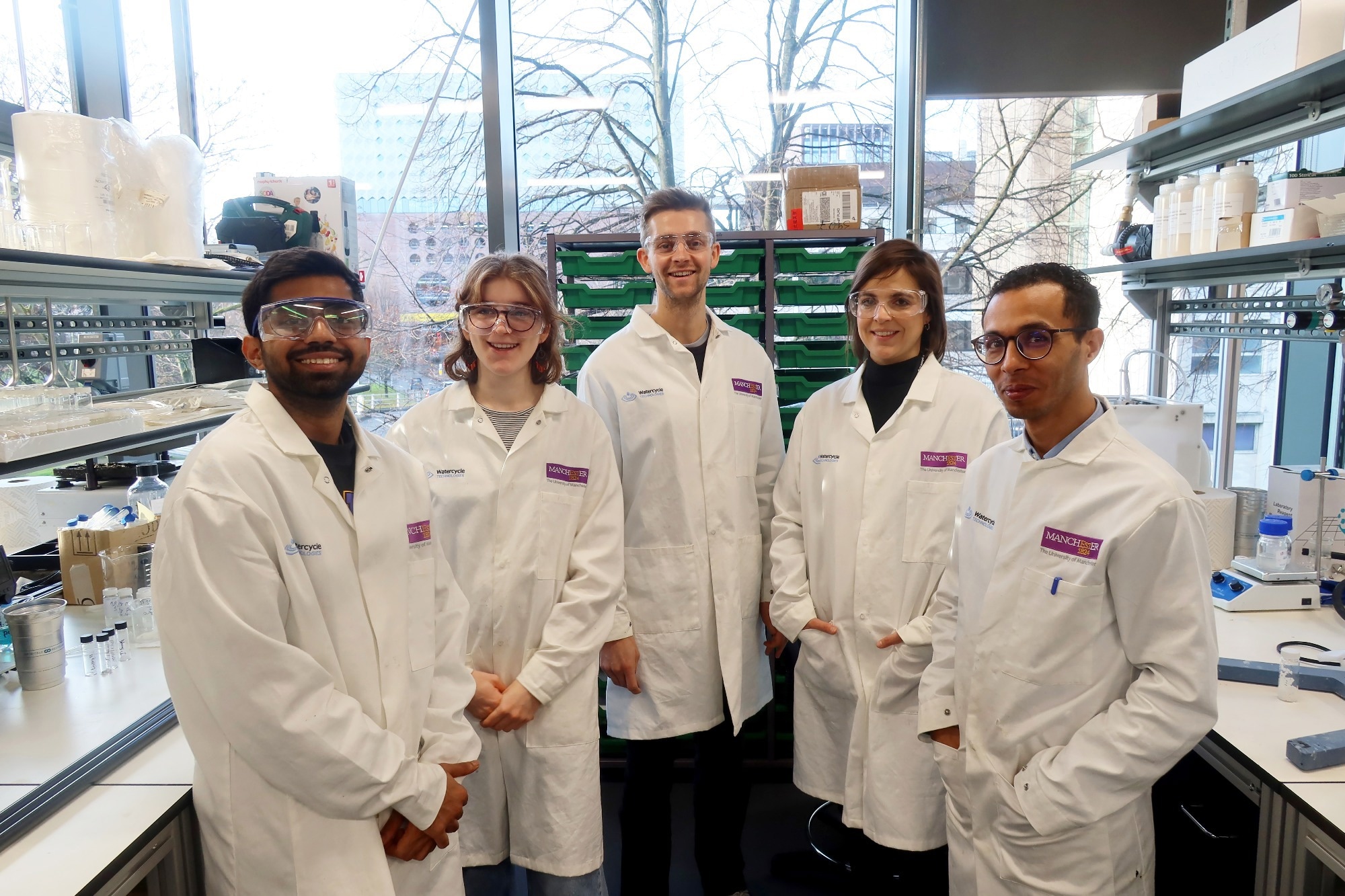Watercycle Technologies Ltd, a UK a deep tech company focused on developing sustainable mineral extraction and water treatment systems, has, for the first time, recovered commercial grade lithium carbonate and near 100% pure graphite from Black Mass, a solid black powder containing a complex mixture of metals and impurities recovered from the recycling of end-of-life Lithium-ion batteries.

Image Credit: Watercycle Technologies Ltd
Conducted in partnership with globally renowned precious metal recovery specialists RSBruce, the test work on 1 kg of Black Mass validates the Watercycle’s ground-breaking technology and underpins the major contribution that deep tech university spin outs are playing in championing the UK’s ambitions for the energy transition and the attainment of a Circular Economy.
Highlights
- Watercycle’s technology proven to recover commercial grade critical minerals from Black Mass found in end-of-life lithium-ion batteries:
- Lithium Carbonate
- Graphite
- Cobalt, Nickel, and Manganese
- Advancing partnership with RSBruce to develop a tonnage-scale field trial to fulfil Watercycle’s strategy to deliver the UK’s first environmental solution to critical mineral recycling and supply.
- Marks the first step forward in commercialising Watercycle’s DLECTM technology.
Watercycle co-founder and CTO Dr Ahmed Abdelkarim said, “Atoms were first split in Manchester by Ernst Rutherford and likewise, the WCT team is the first in the UK to extract both lithium carbonate and graphite from Black Mass. These results demonstrate that our ground-breaking technology can recycle critical minerals from Black Mass cost effectively, sustainably and with little waste. We expected to produce high grade lithium carbonate but the addition of the recovery of nearly 100% graphite is extremely exciting and a potential game changer. Graphite represents between 30-40% of the minerals in an EV battery and the demand forecasts, as with lithium, are extremely pronounced as the world looks to decarbonise.”
Watercycle co-founder and CEO Dr Seb Leaper added, “The battery recycling market is estimated to grow from USD 17.2 billion in 2020 to USD 23.2 billion by 2025, at a CAGR of 6.1% from 2020 to 2025. There is therefore a fantastic commercial opportunity for companies that can recycle Black Mass and, having proven that we can extract multiple high-grade materials, we can now not only potentially generate significant revenue but also aid the transition towards a Circular Economy.”
RSBruce Battery Recycling Business Manager Sam Haig said, “We are very pleased with these ground-breaking results, which demonstrate the potential to increase material recovery from end-of-life batteries and ensure a reliable harvest of valuable raw materials for battery manufacturing. Accordingly, we look forward to continuing the collaboration with Watercycle and are now exploring plans to develop a pilot plant project.”
Details
Testing & Results
As part of Watercycle’s development strategy, in collaboration with RSBruce, a globally renowned expert in precious metal recovery based in Sheffield, a Feasibility Study was undertaken aimed at maximising the recovery of graphite and lithium carbonate from spent batteries that can then be utilised in the EV supply chain for a UK best-in-class environmental solution to critical mineral recycling and supply.
Test work was carried out on 1 kg of Black Mass supplied by RSBruce – this is a solid powder containing a mixture of metals and impurities recovered from the recycling of end-of-life Lithium-ion batteries. The composition of the Black Mass consisted mainly of cobalt, nickel, manganese, and lithium, while also containing noticeable amounts of iron, aluminium, and copper. Based on analysis, the Black Mass contained graphite with a percentage up to 40%.
Black Mass samples were prepared for analysis, characterised, and treated using Watercycle’s proprietary membrane filtration process to recover graphite, lithium carbonate and a residual black mass solution comprising nickel, manganese, and cobalt in three separate streams. The lithium rich solution produced was then processed through Watercycle’s lithium extraction and crystallisation process with the resultant crystals then characterised with X-ray diffraction (‘XRD’) and compared to a commercial product.
The results demonstrate the significant opportunity to recover value-added products from Black Mass processing using Watercycle’s system. Notably, Watercycle’s system is more cost and environmentally friendly than its competitors due to its multistep extraction process that enables high value by-products to be recovered that can either be sold on or reused and can thereby offset the cost of reagents in the wider process.
Under the terms of the Agreement with RSBruce, having successfully completed the Feasibility Study, Watercycle and RSBruce are now working towards finalising plans for the development of a pilot plant.